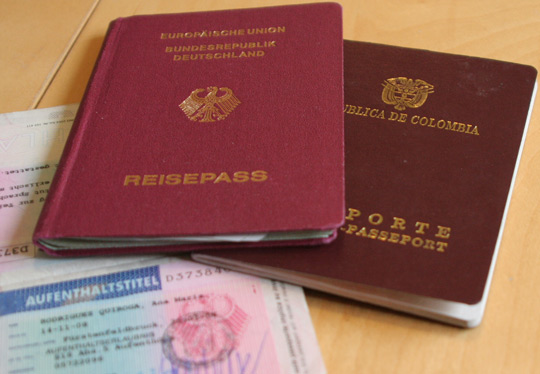Tips for Transferring Abroad
There are all sorts of things that could send you out of the country for an extended period of time—or even force you to relocate permanently. For example, one of my friends was accepted to Oxford. It’s amazing and has forced her to make a four-year (possibly longer if she gets an employment placement within the University after she graduates from her program) commitment to the UK. Another friend works with Doctors Without Borders and is often sent overseas for work. Still another did a lengthy stint in South America for the Peace Corps after graduating from college.
On the flip side of that coin, I have had friends who live abroad choose to move here (or return after long periods away). One friend is moving Stateside from the UK because he married an American. Another recently moved home after spending almost two decades in Australia.
I can tell you that the process is far from simple. I’ve heard horror stories of visas denied at the last minute (one friend had to cancel her acceptance to a program in Spain because she couldn’t get the form she needed from the federal visa office in time to attend class) to entire containers of furniture being lost only to finally be recovered months later after the family had replaced everything. To keep these things from happening to you, make sure you cover the following bases.
Start Saving Your Money
Moving costs money; and moving to another country can easily set you back hundreds, even thousands of dollars. You have to pay for your air fare, the cost of shipping your stuff overseas, the cost of buying anything you can’t ship, visas, legal documents, and countless other fees. Even if your company reimburses you for moving expenses, you still have to pay much of this upfront, which is why you need to start saving the second you find out that you’re moving.
In order to start saving, you need to have a clear idea of what your expenses will be.
· Find out how much your visa fees will be, as well as the deadlines for applying, from the U.S. Department of State, or from the official government website of the country to which you are moving.
· Find out the cost of moving your possessions internationally, as well as tips and guides for moving abroad, from companies like Unigroup Relocation that specialize in international moves.
· Airlines and travel agencies can give you fare information, but you can often get a lower price if you book your flight far in advance.
· If your company is not providing housing, you can find housing through international real estate firms, like World Properties. You may need to use an exchange calculator to determine the rental prices in US dollars.
You should also save up for unexpected expenses, such as medical care or emergency trips home. Even though you will be drawing a salary while there, it’s always a good idea to have a nest egg.
Make Sure all your Paperwork is in Order
The last thing you want to do is reach your destination and discover that you are missing some crucial piece of documentation to gain entry into the country.
Make copies of every immigration document that you have signed and submitted to both countries. You should also have copies of your will, power of attorney, medical information, and any other documentation that you, your family members, and even your pets might need in your new country.
Double-check all the forms before you submit them, to make sure they are all complete, and follow up on their status soon after you submit them.
Oh, the red tape surrounding an international move — and the unbelievable inconvenience of arriving at your far-off destination only to find out you’re missing a document required for you to live there.
Get Your Medical Situation in Order
Make sure you have all of the recommended shots for where you will be living, and get proof of vaccination. If you need to get boosters, find out when and where you will be able to get them in your new country.
If you, or someone in your family, has a medical condition, make sure you can have safe and legal access to your medication. Make sure you have a physician’s note for any medications that you will need to carry into the country. You should also pack backup eyeglasses, contact lenses, CPAP masks, and any other medical equipment and supplies in case some get lost in transit.
Find out what kind of health insurance you may need, or if you can use your current insurance while living internationally. If the country has universal healthcare, find out if you will be eligible for coverage under your visa.
You should also get basic information about the healthcare system in your new country, including how to contact emergency services, and options for routine medical care like dental cleanings, urologic and gynecologic exams, mammograms, and physicals.
Organize Your Finances
· Find out your banking options. Can you continue to use your home bank, including your credit/debit card and direct deposit, or will you need to open an account there? If you can continue using your account, do you have to fill out any special paperwork to bank internationally? If you have to open a new account there, try to do it before the actual move.
· If you are planning keep your current home or apartment, you need to set up automatic payments for utilities, mortgage payments, insurance, or any other expenses related to the residence.
· Determine which credit cards you can use internationally, without fees, and inform the credit card companies that you are moving abroad, so that your account does not get flagged for fraud.
· Figure out your tax situation. Will you still be required to pay U.S. income tax? What are the income tax requirements for your host country?





